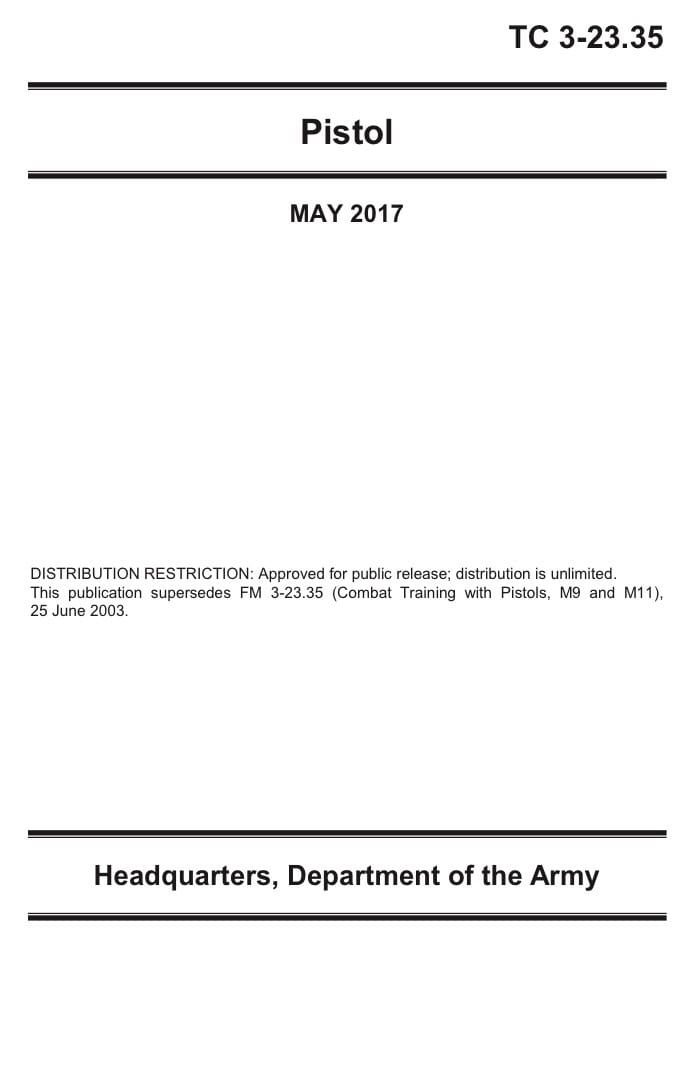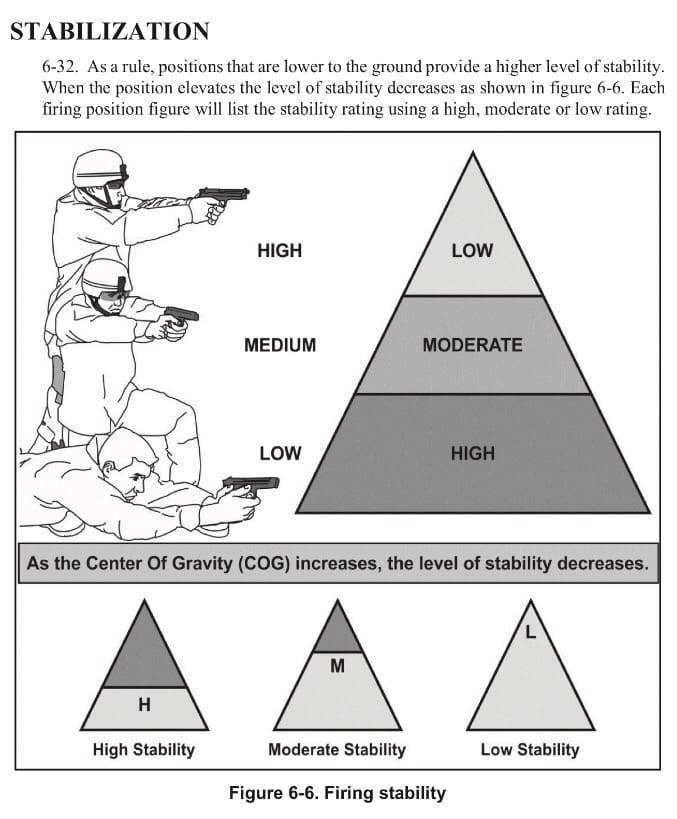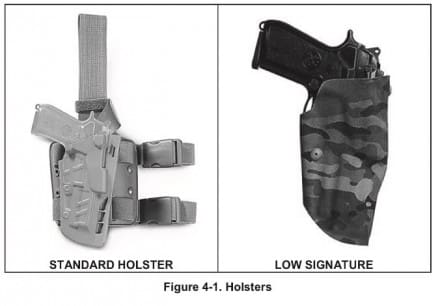The Army has released Training Circular 3-22.35, Pistol which uses a similar format to TC 3-22.9, Rifle and Carbine, released one year ago. Although it focuses on the current issue M9, because it is so focused on employment considerations, it will be easy to update once the M17 is fielded.
Introduction This manual is comprised of nine chapters and five appendices, and is specifically tailored to the individual Soldier’s use of the M9 service pistol. This TC provides specific information about the weapon, aiming devices, attachments, followed by sequential chapters on the tactical employment of the weapon system.
The training circular itself is purposely organized in a progressive manner, each chapter or appendix building on the information from the previous section. This organization provides a logical sequence of information which directly supports the Army’s training strategy for the weapon at the individual level.
Chapters 1 through 4 describe safety, operation, types of sights, and accessories associated with the M9 service pistol. General information is provided in the chapters of the manual, with more advanced information placed in appendix A, Ammunition, and appendix B, Ballistics.
Chapters 5 through 9 provide the employment, stability, aiming, control and movement information. This portion focuses on the Solider skills needed to produce well aimed shots. Advanced engagement concepts are provided in appendix C of this publication. Appendix D of this publication provides common tactical drills that are used in training and combat that directly support tactical engagements. Appendix E of this publication provides information about qualificaton.
This manual does not cover the specific M9 service pistol training strategy, ammunition requirements for the training strategy, or range operations. These areas will be covered in separate training circulars.
Conclusion
TC 3-23.35 applies to all Soldiers, regardless of experience or position. This publication is designed specifically for the Soldier’s use on the range during training, and as a reference while deployed.
The illustrations are really well done.
One of the things worth checking out is this holster illustration. I’ve been sitting on my hands over this new issue Safariland holster, and it shows up in a new manual. Remember, you saw it here first.
To read TC 3-22.35, click here.
Thanks CR





Is that an ALS and a g-code? Interesting that there is a “low signature” holster
Both Safariland. The drop leg appears to be an ALS 7TS of some sort.
Yes, it was submitted to the Army for their Holster solicitation.
Will an x300 light fit in that drop leg holster ?
Pretty disheartening to think that what is now termed the “standard holster” is a drop-down, buckled-on, bounce-against-your-thigh rig. That kind of thing used to be limited to specialized applications, like rappelling through the skylights stuff.
that surprised me too
All part of a kit. Don’t despair
+1 @ Hess – Manual looks awesome
The drop down thigh holster does not bounce around if worn properly. The so called thigh rig is to be worn high on the leg and the strap or straps are to be tied tightly. If worn as directed they are actually not a bad system. However i agree there are much better systems nowadays than a thigh rig.
A lot of quality info for those willing to absorb it.
Qualification remains a joke.
Where can one buy this?
Office Depot. Get a binder and some paper and print off the free .pdf. “That’s how the Army does it.”
In all seriousness, I don’t know if anyone has published it yet with it’s 30May publication date. I’d say ask your usual sources of reprinted government manuals.
Thanks for the assist
What is truly awesome is the carry condition of the M9. Safety off hammer decocked. True DA/SA. Some CSM is having a conniption right now.
A striker fired pistol will do wonders to improve soilder’s ability to fire handguns more than anything else.
Codified tank range methodology for arming status. In every other discipline except arming status, red means an item that not ready for use; red air can’t fly, red NVGs can’t see, red fuel is tanks too low to sustain operations, etc. But a red gun is ready to do it’s job. It’s always been jarring to me and it’s entirely consistent in the training paradigm; red means increased risk on the range just as it means increased risk of mission failure in the other instances. But it anchors our operations to the training paradigm of red is bad and not ready.